★★
“Carry on camping.”
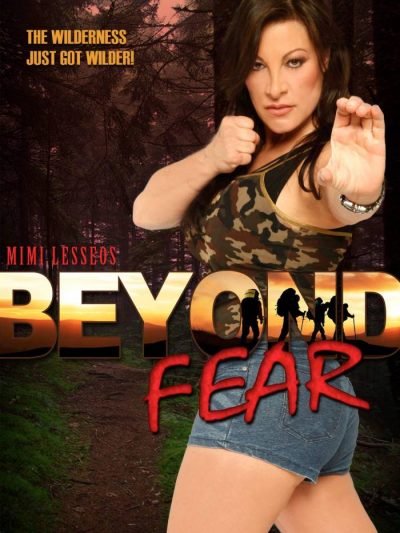 Former WWF star Lesseos, where she was known as the Fabulous Mimi, carved out a small career for herself in low-budget action films, mostly in the mid-nineties. Though the ones we’ve covered before, such as Double Duty and Pushed to the Limit, aren’t exactly classics. This, unfortunately, continues that trend, with far too much sitting around campfires, and not enough action. Put another way, it’s a movie which is in tents, instead of intense. [Thank you, I’ll be here all week…] Lesseos plays wilderness guide and former mixed martial-arts fighter Tipper Taylor, who has been contracted to take a bunch of noobs out for a few days of camping. Unfortunately, one of them, Vince (Axelrod), happens to witness and videotape a murder at a campsite. The two perpetrators need to recover the incriminating footage, and set about stalking the party through the wilderness, abducting Vince in an effort to get him to hand over the cassette.
Former WWF star Lesseos, where she was known as the Fabulous Mimi, carved out a small career for herself in low-budget action films, mostly in the mid-nineties. Though the ones we’ve covered before, such as Double Duty and Pushed to the Limit, aren’t exactly classics. This, unfortunately, continues that trend, with far too much sitting around campfires, and not enough action. Put another way, it’s a movie which is in tents, instead of intense. [Thank you, I’ll be here all week…] Lesseos plays wilderness guide and former mixed martial-arts fighter Tipper Taylor, who has been contracted to take a bunch of noobs out for a few days of camping. Unfortunately, one of them, Vince (Axelrod), happens to witness and videotape a murder at a campsite. The two perpetrators need to recover the incriminating footage, and set about stalking the party through the wilderness, abducting Vince in an effort to get him to hand over the cassette.
This eventually leads to what is largely the film’s sole redeeming feature: a fairly lengthy and not badly-staged rural brawl between Tipper and Boar (Bower), the most brutal of the villains. The key word, unfortunately, is “eventually”. Because, to reach that point, you have to sit through well over an hour of the most mind-numbing chit-chat you could possibly come up with. It feels as if the original script was some kind of ensemble relationship piece, onto which the makers decided at the last moment to bolt on some fisticuffs. This feels most obvious during our first exposure to the heroine’s talents, in a thoroughly clunky scene where she literally pulls over to try and break up a fight between two vagrants. Instead, everyone is given a deeply uninteresting back-story. For example, Vince and his wife are lottery winners, now working through problems with their marriage, and Tipper is feeling guilty over her final MMA fight, which left her best friend paralyzed.
None of which has anything to do with the main plot, and so can entirely be ignored. Though I can’t over-stress just how much of this nonsense there is. If you’re looking for an open-air soap-opera, this should be your jam. Which is a bit of a shame, as Lesseos brings an easy, likable charm to Tipper, making her someone for whom you want to root. Her fighting style is stiff – though I should clarify, this is intended in the pro wrestling sense, meaning hard-hitting, It’s clear that’s where her background lies, with moves like drop-kicks not typically being part of the martial arts armoury! The problems here lie elsewhere, with a plot which just doesn’t foreground its action elements, never manages to set up Boar and his ally as any kind of credible threat, and all but entirely fails to explain why Vince never bothers telling anyone – least of all the authorities – about the snuff movie he recorded. Though I must confess to having laughed at the line in the trailer, “Mimi believes in women’s rights… lefts and uppercuts,” it’s all remarkably poorly thought-out, and I couldn’t help feeling that Mimi deserves better.
Dir: Robert F. Lyons
Star: Mimi Lesseos, Verrel Reed, Robert Axelrod, Wayne Bower





 Becky (Wilson) is the quintessential troubled teenager. Since her mother died, she has become increasingly estranged from her father, Jeff (McHale, replacing the original choice, Simon Pegg, who had to drop out due to scheduling conflicts), not least because of his new girlfriend, Kayla. Dad arranges a weekend away for everyone at the family cabin to try and repair things. However, relationship problems rapidly become the least of everyone’s concerns. For a quartet of escaped Aryan Brotherhood convicts, led by Dominick (James, going completely and effectively against type), have turned up, seeking a key they had hid on the property. Not too happy to find an inter-racial family, they capture everyone except Becky, who had stormed off in one of her huffs.
Becky (Wilson) is the quintessential troubled teenager. Since her mother died, she has become increasingly estranged from her father, Jeff (McHale, replacing the original choice, Simon Pegg, who had to drop out due to scheduling conflicts), not least because of his new girlfriend, Kayla. Dad arranges a weekend away for everyone at the family cabin to try and repair things. However, relationship problems rapidly become the least of everyone’s concerns. For a quartet of escaped Aryan Brotherhood convicts, led by Dominick (James, going completely and effectively against type), have turned up, seeking a key they had hid on the property. Not too happy to find an inter-racial family, they capture everyone except Becky, who had stormed off in one of her huffs.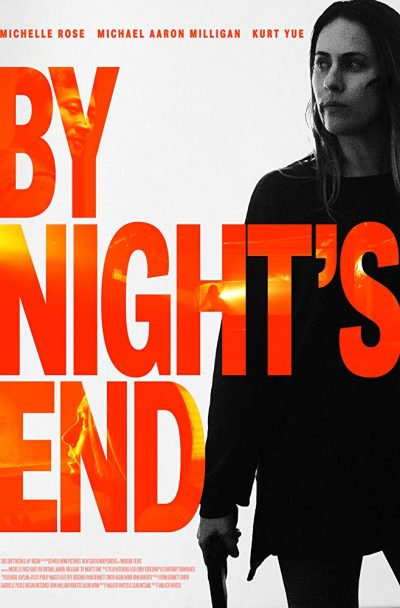 There are lessons to be learned here. In particular: should you gun down a home invader in the middle of the night… just call the cops. Even if they have offered you ten thousand dollars to let them walk away, immediately before their untimely demise… just call the cops. Of course, Heather (Rose) and Kurt (Yue) have issues, which make their decision to do otherwise understandable, if not wise. They’re teetering on the edge of financial carnage, and figure that if the intruder was willing to pay them that much, whatever he was after in their house has got to be worth a lot more. Therefore, they postpone alerting the authorities for a bit, choosing to look for the target of the search.
There are lessons to be learned here. In particular: should you gun down a home invader in the middle of the night… just call the cops. Even if they have offered you ten thousand dollars to let them walk away, immediately before their untimely demise… just call the cops. Of course, Heather (Rose) and Kurt (Yue) have issues, which make their decision to do otherwise understandable, if not wise. They’re teetering on the edge of financial carnage, and figure that if the intruder was willing to pay them that much, whatever he was after in their house has got to be worth a lot more. Therefore, they postpone alerting the authorities for a bit, choosing to look for the target of the search. Almost four years after
Almost four years after  I try and not let my expectations influence my reviews: a movie deserves to be judged on what it is, rather than what I expected it to be. A film-maker usually doesn’t get to decide, for instance, the DVD sleeve. But when you invoke the name of Boudica in your title, this creates certain requirements with regard to your content, especially when combined with the words “warrior queen.” These are requirements which this movie is utterly incapable of meeting. Technically, the word “rise” is probably the only accurate element to be found, on the cover, which certainly counts as among the most inaccurate in recent memory.
I try and not let my expectations influence my reviews: a movie deserves to be judged on what it is, rather than what I expected it to be. A film-maker usually doesn’t get to decide, for instance, the DVD sleeve. But when you invoke the name of Boudica in your title, this creates certain requirements with regard to your content, especially when combined with the words “warrior queen.” These are requirements which this movie is utterly incapable of meeting. Technically, the word “rise” is probably the only accurate element to be found, on the cover, which certainly counts as among the most inaccurate in recent memory.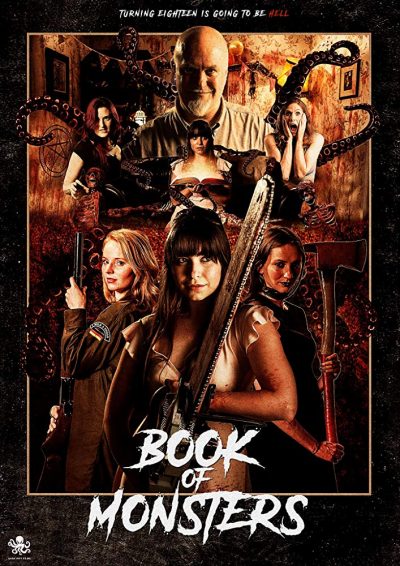 Ten years ago, the mother of eight-year-old Sophie (Craine) was attacked and killed by what her daughter insisted was a monster – a claim to which she held, resulting in her being institutionalized. Now, a somewhat recovered Sophie is about to enjoy her 18th birthday, having organized a party with her friends. But she’s about to discover that the monsters were very real, and just waiting for her to reach adulthood. Fortunately, Mom was a bit of a monster hunter, who conveniently left a book of helpful tips as well as a secret vault of tools and weapons. Together with her pals, Sophie is prepared to make a stand and defend her home against the attackers.
Ten years ago, the mother of eight-year-old Sophie (Craine) was attacked and killed by what her daughter insisted was a monster – a claim to which she held, resulting in her being institutionalized. Now, a somewhat recovered Sophie is about to enjoy her 18th birthday, having organized a party with her friends. But she’s about to discover that the monsters were very real, and just waiting for her to reach adulthood. Fortunately, Mom was a bit of a monster hunter, who conveniently left a book of helpful tips as well as a secret vault of tools and weapons. Together with her pals, Sophie is prepared to make a stand and defend her home against the attackers.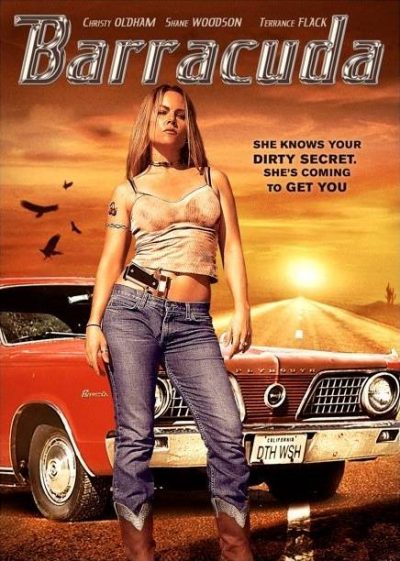 Struggling artist Summer (Oldham) takes on a temporary job as a phone-sex operator to make ends meet. It gives her a very jaundiced view of men, having had to plunge into the worst and most sordid depths of their fantasies. After realizing that some pose a more direct threat, and funded by hush money from one of her customers, she buys the car of the title. and takes their information, along with the tapes she has recorded of them, on a little road-trip across the South and West of America. She’s heading towards her sister (Hinchley), bringing the perverts to justice as she goes, and seeking closure for her own past.
Struggling artist Summer (Oldham) takes on a temporary job as a phone-sex operator to make ends meet. It gives her a very jaundiced view of men, having had to plunge into the worst and most sordid depths of their fantasies. After realizing that some pose a more direct threat, and funded by hush money from one of her customers, she buys the car of the title. and takes their information, along with the tapes she has recorded of them, on a little road-trip across the South and West of America. She’s heading towards her sister (Hinchley), bringing the perverts to justice as she goes, and seeking closure for her own past.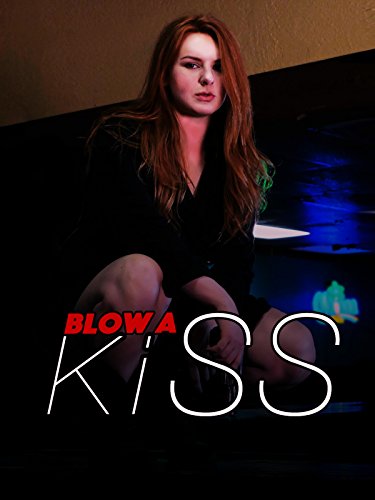 You could skip the first 30-45 minutes of this, and it really would not affect your enjoyment level significantly. It seems to be one of those cases where the director is far more in love with the dialogue and characters than they deserves, and so we have to sit through far too much flapping of jaws by the latter, delivering the former in inane and uninteresting conversation, before we get to the meat of the story. Which is, as follows.
You could skip the first 30-45 minutes of this, and it really would not affect your enjoyment level significantly. It seems to be one of those cases where the director is far more in love with the dialogue and characters than they deserves, and so we have to sit through far too much flapping of jaws by the latter, delivering the former in inane and uninteresting conversation, before we get to the meat of the story. Which is, as follows. Or, to give this its full, rather misguided name: Birds of Prey (and the Fantabulous Emancipation of One Harley Quinn). I am not convinced that films are improved by giving them gimmick titles including made-up words. It smacks rather of desperation on the part of the makers. Though this is… alright. It did not actively annoy me in quite the same way
Or, to give this its full, rather misguided name: Birds of Prey (and the Fantabulous Emancipation of One Harley Quinn). I am not convinced that films are improved by giving them gimmick titles including made-up words. It smacks rather of desperation on the part of the makers. Though this is… alright. It did not actively annoy me in quite the same way  The action is a bit of a mixed bag. There are a couple of very good brawls for Harley, most notably one in a police evidence warehouse (even if the cops seem curiously unwilling to draw and use their firearms. What is this, the United Kingdom?) where Robbie and her stunt doubles get to showcase some stellar moves. But the final fight has much the same problem as the plot in general. In trying to make sure each of the four fighting leads get their chance to shine (Cassandra basically cowers in a corner for the duration of it), the climax basically succeeds in selling all of them short. There is quite a nice “funhouse” atmosphere there, since it takes place in an abandoned amusement park, though it feels like some of the potential wasn’t fully developed.
The action is a bit of a mixed bag. There are a couple of very good brawls for Harley, most notably one in a police evidence warehouse (even if the cops seem curiously unwilling to draw and use their firearms. What is this, the United Kingdom?) where Robbie and her stunt doubles get to showcase some stellar moves. But the final fight has much the same problem as the plot in general. In trying to make sure each of the four fighting leads get their chance to shine (Cassandra basically cowers in a corner for the duration of it), the climax basically succeeds in selling all of them short. There is quite a nice “funhouse” atmosphere there, since it takes place in an abandoned amusement park, though it feels like some of the potential wasn’t fully developed.























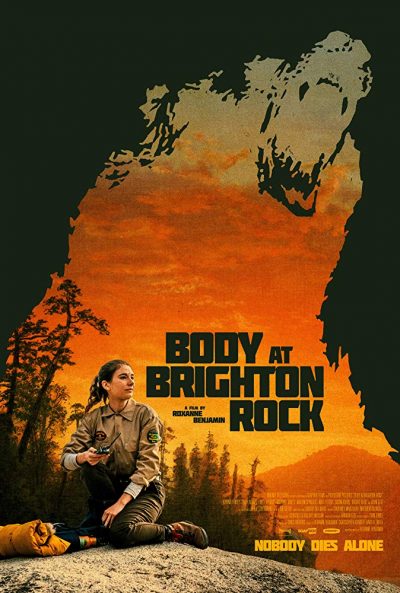 Proving not quite able to sustain its running time, this ends up collapsing under its own weight. The lead actress tries her best, and her character is likeable enough, but in her debut leading a feature, isn’t able to carry a film in which she is in virtually every scene. Fontes plays park ranger Wendy, whose duties are typically limited to handing out leaflets and lecturing small children about the dangers of forest fires. To help out a colleague, she takes on a more strenuous task, only to find herself lost in the great outdoors, as darkness approaches. She then stumbles across a body at the foot of a cliff: was it death by misadventure, or something more malicious?
Proving not quite able to sustain its running time, this ends up collapsing under its own weight. The lead actress tries her best, and her character is likeable enough, but in her debut leading a feature, isn’t able to carry a film in which she is in virtually every scene. Fontes plays park ranger Wendy, whose duties are typically limited to handing out leaflets and lecturing small children about the dangers of forest fires. To help out a colleague, she takes on a more strenuous task, only to find herself lost in the great outdoors, as darkness approaches. She then stumbles across a body at the foot of a cliff: was it death by misadventure, or something more malicious?